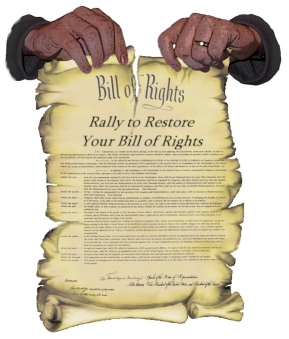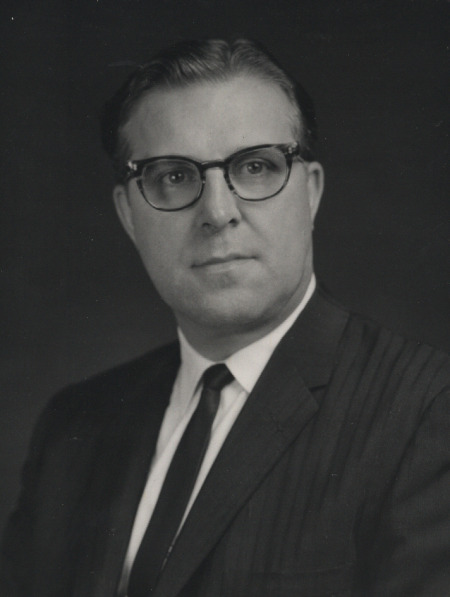 Mothers Described
Mothers Described
Paying mothers. Mothers pay dearly for the privilege of motherhood. They pay with pain, blood, sweat and tears. They pay with worry, anxiety, frustration and exasperation. They pay with loss of sleep, loss of adult conversation, loss of time, loss of nicely manicured nails, loss of clean clothes that haven’t been spit up on…and did I mention loss of sleep?
Saying mothers. Mothers are always saying something. “Don’t play with your food. Don’t hit your sister. Be nice. We always pray before we eat. Don’t you run away from me. Get back here. Be back for supper. Who are you talking to? Remember, God sees you!”
Staying mothers. Mothers have staying power. Mothers are always there, always within reach. Mothers maintain their sense of duty when everyone else seems to forget theirs. Mothers remember when it is time to eat, time to go to bed, time to get up and time to go to school. Mothers remember birthdays, anniversaries and pictures. Mothers remember who is most important to them…you are.
Graying mothers. Years of cooking, cleaning, washing, ironing and loving take their toll. There’s not one gray hair in a mother’s head that is not deserved. She may be getting older, but each graying hair, each minute wrinkle and each snap, crackle and pop of arthritic knees only serves to endear her to her grateful children. That’s what Mother’s Day is for. She needs to hear that it was worth all the trouble.
Praying mothers. Regardless of how hard they try, Mothers always feel that they could and should do a better job of being a mother. When she quietly observes her children playing in the next room, when she watches their little tummies rise and fall in sleep, when she sees them off to school or when she watches them drive off in their car, she knows she can only do one more thing—pray. She pleads for God’s protection over them. She calls for the precious blood of Christ to cover them. She speaks their names to the Master for his blessing and grace. She instructs the holy Angels to guard their lives. She prays for their eternal salvation.
Paying, saying, staying graying mothers…all of them are indispensable and inescapable aspects of motherhood. But the most important virtue of them all is praying.
Sad Mothers’ Day
Mother’s Day is not always easy to celebrate. Bittersweet memories make many Moms and children fight back salty tears. We find much to love and cherish, but we have to sort through sad and sorrowful—or painful and hurtful incidents—in order to focus on the good things.
- It’s hard if your child is in the military.
- It’s hard if your child is stricken with a disease and is in a hospital.
- It’s hard if you child was born with a congenital defect.
- It’s hard if your son or daughter has deep mental or emotional problems.
- It’s hard if your son or daughter is incarcerated, estranged or missing.
- It’s hard if your child suffers from addictions or debilitating habits.
- It’s hard if your children find themselves wandering in a spiritual wilderness.
- It’s hard if your child’s own family is shattered and hurting.
- It’s hard if you are a stepmother with stressful relationship with your stepchildren.
- It’s hard if your children are in a rebellious stage of life.
- It’s hard if you have had to leave a child in a cemetery.
You find it hard not to see the negatives.
You wish that it could be different…better…healed.
In the agony of your heart, you grant the voice of pain far more significance that it deserves…
But remember…
- The circumstances that your children may be in do not lessen your love for them.
- In a miraculous, divine way, a mother’s love transcends every problem, every hurt and every pain.
- Sorrow only accents your love; it does not diminish it.
- Every good thing that you discover in your relationship is cherished more than ever.
- You never overlook a smile, a sweet expression, a moment of enjoyment.
- The fewer good moments you have mean more precisely because of their rarity.
- You take nothing for granted.
Sweep the negatives away this Mother’s Day.
In your mind and heart, pay close attention only to the love that you know is there.
Hebrews 12:2 “Looking unto Jesus the author and finisher of our faith; who for the joy that was set before him endured the cross, despising the shame, and is set down at the right hand of the throne of God.”
Quotes about Mothers
Moms definitely have their humorous moments and these 16 funny quotes are testimony to the laughs that mothers often enjoy (and sometimes endure). This Mother’s Day, share these funny quotes with your mom and enjoy a moment of shared love and laughter.
1. “Mothers of teenagers know why animals eat their young.” ~ Author Unknown
2. “Mothers are all slightly insane.” ~ J.D. Salinger
3. “I want my children to have all the things I couldn’t afford. Then I want to move in with them.” ~ Phyllis Diller
4. “There is only one pretty child in the world, and every mother has it.” ~ Chinese Proverb
5. “It takes a woman twenty years to make a man of her son, and another woman twenty minutes to make a fool of him.” ~ Helen Rowland
6. “The most remarkable thing about my mother is that for thirty years she served the family nothing but leftovers. The original meal has never been found.” ~ Calvin Trillin
7. “A suburban mother’s role is to deliver children obstetrically once, and by car for ever after.” ~ Peter De Vries
8. “It would seem that something which means poverty, disorder and violence every single day should be avoided entirely, but the desire to beget children is a natural urge.” ~ Phyllis Diller
9. “All women become like their mothers. That is their tragedy. No man does. That’s his.” ~ Oscar Wilde
10. “A mother is a person who seeing there are only four pieces of pie for five people, promptly announces she never did care for pie.” ~ Tenneva Jordan
11. “You don’t really understand human nature unless you know why a child on a merry-go-round will wave at his parents every time around - and why his parents will always wave back.” ~William D. Tammeus.
12. “Working mothers are guinea pigs in a scientific experiment to show that sleep is not necessary to human life.” ~ Author Unknown
13. “Any mother could perform the jobs of several air-traffic controllers with ease.” ~ LisaAlther
14. “My mother had to send me to the movies with my birth certificate, so that I wouldn’t have to pay the extra fifty cents that the adults had to pay.” ~ KareemAbdul-Jabbar
15. “My mother had a great deal of trouble with me, but I think she enjoyed it.” ~ Mark Twain
16. “My mother’s menu consisted of two choices: Take it or leave it.” ~ Buddy Hackett
Yes, children often give their mothers something to laugh about. Hopefully it makes up for the things their children will inevitably do to make them cry. This year celebrate the humorous side of Mother’s Day with a few good laughs and share these funny quotes with your mom.
Mom’s Commandments
I. Shut the door.
II. Finish your chores.
III. Make your bed.
IV. Leave unkind words unsaid.
V. Pick up your mess.
VI. Be neat in your dress.
VII. Thou shalt not tease.
VIII. Wash your hands please.
IX. Love one another.
X. Especially your Mother.
DEAR MOM, You made me go to Sunday School;
You insisted that I get a college degree;
You made me go to sleep by 10 PM when I was an adolescent;
You made me come inside when it got dark;
You told me not to play with matches;
You corrected my grammar;
You made me wash my hands;
You made me eat my vegetables;
You made me walk my dog;
You wouldn’t let me cross the big avenue until I was ten years old;
You made me use a handkerchief instead of using my sleeve;
You told me to do my homework;
You made me stand up straight, and take my hands out of my pockets;
You made me look it up in the dictionary;
You wouldn’t let me have dessert before dinner;
You made me pay for Mrs. Larson’s window;
You made me clean my room;
You made me put my money in the bank;
You made me mow the lawn;
You made me shovel the snow off the sidewalk;
You wouldn’t let me watch too much TV;
You made me turn down my music;
You made me wear a bicycle helmet;
You wouldn’t let me get a motorcycle;
You made me get a haircut;
You said that I couldn’t have snakes;
You wouldn’t let me spit, or pick my nose;
You slapped me on the rump just because the principal called;
You wouldn’t let me smoke grass or drink booze;
You wouldn’t let me play with firecrackers; …
Come to think of it, you sure weren’t any fun..:) …
But I thank you for it today.
For I am who I am because of you!
THANKS MOM!!
Before I got married I had six theories about bringing up children; now I have six children, and no theories.
- John Wilmot
Before I was a Mom
Before I was a Mom - I slept as late as I wanted and never worried about how late I got into bed. I brushed my hair and my teeth everyday.
Before I was a Mom - I cleaned my house each day. I never tripped over toys or forgot words to a lullaby. I didn’t worry whether or not my plants were poisonous. I never thought about immunizations.
Before I was a Mom - I never held down a screaming child so that doctors could do tests…or give shots. I never looked into teary eyes and cried. I never got gloriously happy over a simple grin. I never sat up late hours at night watching a baby sleep.
Before I was a Mom - I never held a sleeping baby just because I didn’t want to put it down. I never felt my heart break into a million pieces when I couldn’t stop the hurt. I never knew that something so small could affect my life
so much. I never knew that I could love someone so much. I never knew I would love being a Mom.
Before I was a Mom - I didn’t know the feeling of having my heart outside my body. I didn’t know how special it could feel to feed a hungry baby. I didn’t know that bond between a mother and her child. I didn’t know that something so small could make me feel so important.
Before I was a Mom - I had never gotten up in the middle of the night every 10 minutes to make sure all was okay. I had never known The warmth, The joy, The love, The heartache, The wonderment or the satisfaction of being a Mom. I didn’t know I was capable of feeling so much before I was a Mom.
Miracle Mother’s Day baby
Updated: Friday, 08 May 2009, 7:25 PM CDT
Published : Friday, 08 May 2009, 5:37 PM CDT
MOBILE, Ala. - To all who know her, Allie Grace is a miracle. You see, she’s Susan and Bill Armbrechts first child. But here’s the special part. They have been married for 24 years and gave up trying to have a baby more than a decade ago.
“It’s great! I couldn’t ask for a better Christmas, or birthday present for the rest of my life,” said Susan Armbrecht.
Mother’s Day used to be a painful for the Armbrechts. But, this year the couple plans to mark the milestone, Susan’s first Mother’s Day, by celebrating. Bill Armbrecht hopes their story inspires others.
“Really message of hope, for people that have given up hope in mid 40’s, to late 40’s,” said Armbrecht. “I hope one day someone will come in my restaurant, the Brick Pit, and show me their baby and say they saw us on FOX10 and that gave them hope,” said Armbrecht.
The Ambrechts said no one can explain how they conceived a child. After all, Susan was 47 and Bill was 52. They had stopped fertility treatments about 16-years ago and had been told it wasn’t meant to be.
“Miracle! God works in ways we don’t understand,” said Susan Armbrecht.
The Prevailing Prayers of Mothers
9 So Hannah rose up after they had eaten in Shiloh, and after they had drunk. Now Eli the priest sat upon a seat by a post of the temple of the LORD.
10 And she was in bitterness of soul, and prayed unto the LORD, and wept sore.
11 And she vowed a vow, and said, O LORD of hosts, if thou wilt indeed look on the affliction of thine handmaid, and remember me, and not forget thine handmaid, but wilt give unto thine handmaid a man child, then I will give him unto the LORD all the days of his life, and there shall no razor come upon his head.
12 And it came to pass, as she continued praying before the LORD, that Eli marked her mouth.
13 Now Hannah, she spake in her heart; only her lips moved, but her voice was not heard: therefore Eli thought she had been drunken.
14 And Eli said unto her, How long wilt thou be drunken? put away thy wine from thee.
15 And Hannah answered and said, No, my lord, I am a woman of a sorrowful spirit: I have drunk neither wine nor strong drink, but have poured out my soul before the LORD.
16 Count not thine handmaid for a daughter of Belial: for out of the abundance of my complaint and grief have I spoken hitherto.
17 Then Eli answered and said, Go in peace: and the God of Israel grant thee thy petition that thou hast asked of him.
18 And she said, Let thine handmaid find grace in thy sight. So the woman went her way, and did eat, and her countenance was no more sad.
19 And they rose up in the morning early, and worshipped before the LORD, and returned, and came to their house to Ramah: and Elkanah knew Hannah his wife; and the LORD remembered her.
20 Wherefore it came to pass, when the time was come about after Hannah had conceived, that she bare a son, and called his name Samuel, saying, Because I have asked him of the LORD.
Some mothers, like Hannah, pray to have children, but stop praying after they come along.
Perhaps they never really stop saying prayers for their children, but the real need of the day is for prevailing prayer. Only a mother can come before the throne of grace and intercede for her children with true passion and love.
The Bible is filled with stories of praying mothers. Whether spoken or implied, praying mothers made the difference in the lives of their children. Ultimately, the history of a nation and the history of the world was shaped by the prayers of praying mothers.
- Jochabed, the mother of Moses, prayed for the young Moses while he was in her keeping.
- Naomi prayed for her sons and then her daughter-in-law Ruth.
- Rachael prayed for her sons Joseph and Benjamin.
- Deborah prayed for the nation of Israel.
- Hannah prayed for Samuel.
- Samson’s mother prayed for him.
- Mary, the mother of Jesus, prayed for him.
- Eunice and Lois, Timothy’s mother and grandmother, prayed for him.
- Dorcas prayed for the church.
- Mary, the mother of John Mark, prayed for the apostles.
- Lydia prayed for revival.
My mother’s prayer for my oldest sister, Carol.
Mothers, do not underestimate the power you have in prayer.
Don’t abandon your post of duty.
Don’t turn your children over to the state, the schools, society.
Don’t assume that everything is going to be alright.
You can pray against drugs, alcohol and sexual promiscuity.
You can pray against the lies of a godless culture.
You can pray against the influence of Satan.
You can pray against disease and sickness.
You can pray against encroaching worldliness.
You can pray a hedge about your family.
You can pray evil influences out of your home.
Prevailing prayer! Prevailing prayer!
Bro. Tenney said there is a long unemployment line in heaven of angels who have no prayer to direct them where to go or what to do.
Hosea 12:4 “Yea, he had power over the angel, and prevailed: he wept, and made supplication unto him: he found him in Bethel, and there he spake with us.”
 Monday, July 6, 2009 at 09:41PM
Monday, July 6, 2009 at 09:41PM  (Whenever I come across thought-provoking pieces, I like to share them with the readers of my blog. Full attribution goes to Graeme Franks who compiled these quotes. Enjoy.)
(Whenever I come across thought-provoking pieces, I like to share them with the readers of my blog. Full attribution goes to Graeme Franks who compiled these quotes. Enjoy.)






